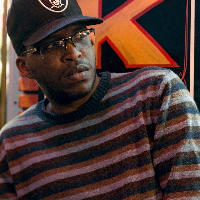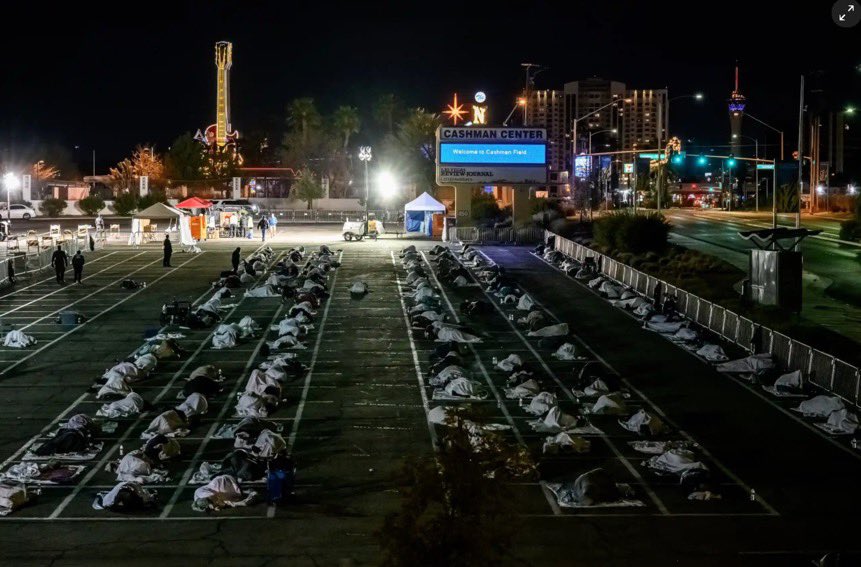I’ve never wanted to restart a year so bad in my life. We lost Kobe Bryant, Trump almost started World War Three with Iran, and now we’re living in a real-life version of Contagion that’s got us on a trajectory rivaling The Great Depression – and we’ve barely entered the second quarter. 2020 so far has been absolute garbage. On the bright side, at least this pandemic is waking people up to the fact that markets are garbage too.
I know that many people reading this may already understand what a market is. However, watching a YouTube video of Sam Seder debating a Libertarian before writing this made me realize that I need to clarify the meaning of markets before I demonstrate precisely why they are trash.
The almighty Google sources their meanings from the Oxford Dictionary’s website Lexico.com, which defines a market as an area or arena in which commercial dealings are conducted.
For example, someone voluntarily calling into a radio show for free doesn’t constitute a commercial dealing since no money or commodities have been or will be exchanged. However, the host monetizing the call later does constitute a commercial dealing with the entity that distributes it, assuming that entity is different. In other words, a market only exists when a commodity is directly exchanged for another commodity, whatever happens later. The commodity most commonly exchanged is money. Markets suck for a lot of reasons, but right now I’ll focus on the contradictions between effective and notional demand and supply, as well as on profit.
Lexico.com defines effective demand as
the level of demand that represents a real intention to purchase a good by people with the means to pay.
In contrast, notional demand is the demand of people who want a commodity but are unable to buy it for some reason, like not having enough money or a ban. Effective supply is the amount of a commodity furnished on the market, as opposed to notional supply, which is the amount of a commodity that would be furnished on a market if there were no market constraints, such as below-average profit margins for the commodity or a ban.
Another critical concept is derived demand, which Lexico.com defines as
a demand for a commodity or service which is a consequence of the demand for something else.
A good example is Nevada governor Stephen Sisolak ordering temporary closure of all non-essential businesses in the state to curb the spread of Covid-19. The order led to lower derived demand for public transportation since fewer people are traveling to work, drink at the bar, get a haircut, and so on.
The Covid-19 outbreak itself is an excellent example of how effective demand and supply can lead to negative results. It’s widely believed that the Covid-19 pandemic started in November of 2019 as a result of consumption of bats or pangolins sold at the Huanan Seafood Wholesale Market – a live animal and seafood market in Wuhan, China that also sold the flesh and organs of various exotic wild animals, referred to as yewei or bushmeat. The other two major coronavirus outbreaks of the past decade, MERS and SARS – of which Covid-19 is a variant – are believed to have originated in bats as well. Although no one has found evidence of anyone selling bats or pangolins at the market, Covid-19’s genetic similarity to another coronavirus found in bats (see here) suggests that it did originate with them and was most likely transmitted to humans through an intermediate animal – widely believed to be a pangolin (see here). Considering that two thirds of the first 41 people hospitalized for Covid-19 had direct exposure to the market (see here), pangolins could have been sold there — under the table, since they are a protected species. Assuming that was the case, the effective demand for yewei, which is known to have already caused two significant outbreaks this decade, met with the effective supply of yewei. Markets can incentivize the supply of dangerous goods – for instance, bombs, the only use of which is murder, or infected meat, leading to a global pandemic like the one we’re dealing with right now.
Another excellent example of the negative results of effective demand is the impact of Covid-19 on my hometown, Las Vegas. The town’s economy revolves around the Strip, which caters mainly to tourists’ and locals’ leisure activities. The effective demand for goods and services was drastically lowered on the Strip after stay-at-home orders were issued to curb the spread of the virus, causing a domino effect. The lower effective demand for goods and services on the Strip led to lower effective demand for labor on the Strip, causing many workers employed on the Strip to be laid-off. With their derived demand for healthcare coverage and housing coming from their employment, these workers being laid-off led, in economic terms, to them losing effective demand for healthcare coverage and shelter during the pandemic.
I give kudos to Wynn Resorts for committing to pay all their employees through mid-May, even though it may only be because it would be too expensive and time-consuming to bring all their employees back if they lay them off. Still, I haven’t heard of any other companies committing to that.
Thank god, also, that Governor Sisolak issued a moratorium on all evictions during the pandemic. Still, he did make it clear that any unpaid rents or mortgages would have to be paid after the pandemic, essentially postponing the homelessness of many Las Vegans to a later date.
The absurdity doesn’t end there. A resident at St. Vincent’s – the town’s homeless shelter for men, where I happened to live for about a month – was diagnosed with Covid-19. As a result, they shut the shelter down until further notice as a “safety precaution” — meaning that they wanted to avoid legal liability if other residents got sick. Now they have as many as 500 residents sleeping outside in the parking lot of Cashman Center, sectioned off into “social distancing” boxes. And this is on the same street as hotels with thousands of empty rooms, which are now only a notional supply due to the ban on non-essential business. Even if that were not the case, these homeless men would have only notional demand for these rooms that could help curb the spread of the disease among them, because they can’t afford them anyway. They are basically leaving these residents out to die, since a vaccine may not be available until at least early 2021 – a vaccine for which they may anyway have only notional demand.
Vaccines usually take 2—5 years to be ready for market, but the urgency of the pandemic has experts hoping optimistically that it can be done in 12—18 months. The long timespan is due partly to the complexity of the vaccine development process, but in large part also to the need for funding. Over 60% of vaccine research and development funding comes from for-profit companies (see here), which was a major stumbling block in the development of vaccines for SARS and MERS. For-profit companies tend to be hesitant to invest in vaccine development since it’s much more lucrative to invest in other medications. Even if they do invest, a pandemic may pass before they can get a vaccine to market – an outcome that they see as a waste of money. Publicly funded research would be subject to the same sort of prioritization, so the only way to guarantee that we develop vaccines promptly is to remove market forces entirely.
In a socialist society there would be no markets, because there would be no money. Since production would be for use rather than for profit, vaccine research and development would not be dependent on securing investment. It would depend only on having the necessary resources at hand. We would not stop developing a vaccine just because a pandemic has passed; we would continue to develop it, so that we would have a head start in case a future pathogen arises with a similar genetic makeup, as with SARS and Covid-19. Since there would be universal free access to all products, we would have an incentive to stockpile a buffer of supplies so we can isolate ourselves for long periods if that is necessary in order to fight a pandemic. Since healthcare would be free, anyone could get tested, use a vaccine, or get a ventilator without impediment or significant delay. Our decisions would no longer be subject to the anarchy of the market, because we would finally have achieved coordinated cooperative control over production and distribution.
Originally published at http://www.wspus.org/2020/04/markets-are-trash/.


